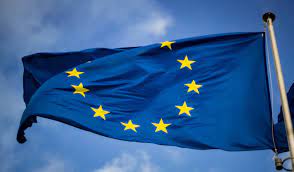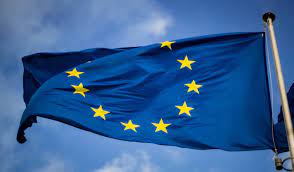
A European Commission study of academics, think tanks, and other groups and individuals proposed that the European Union, like national governments, should have a proper budget that it could use to stabilise the bloc's economy if necessary.
The EU's 27 member states currently have a budget that focuses mostly on equalising living standards, as well as some common spending policies based on statistics that are set every seven years following extensive debate.
"A majority of respondents support the establishment of a central EU fiscal capacity, in particular for macroeconomic stabilisation," a Commission report on the consultation that was published on Monday said.
The notion, promoted by academics as an essential counterbalance to the European Central Bank's single monetary policy, has previously failed to obtain EU government backing.
Until recently, member states have resisted reform since it would imply ceding more national sovereignty to the EU, tighter budgetary cooperation, and, most likely, frequent joint EU borrowing and new EU revenue sources to cover the common debt.
The Commission stated that the new perspectives arose as a result of an online consultation last year in which it solicited feedback on the EU's fiscal framework.
According to the report, more than one-fifth of the 225 legitimate responses came from private persons. A fifth comes from academia, and a fifth from labour unions.
According to the data, non-governmental organisations, independent fiscal institutions, and think tanks were also significant contributors.
According to the Commission, respondents want the regulations to be more supportive of economic growth, social issues, and combating climate change, while still making public debt sustainable.
People and organisations indicated that because of the climate crisis, "green" investment should be given special consideration in the rules, and a considerable majority of them urged for rule simplicity, transparency, and stronger national ownership.
The public consultation is not legally binding. It is part of a discussion on reforms to the EU's fiscal laws, which are currently being reviewed.
According to the Commission, the majority of the opinions came from Italy, with Belgium coming in second and France and Germany not far behind.
By June, the Commission is expected to publish its recommendations on how to change the rules that limit government borrowing in order to protect the value of the euro.
Last year, the EU decided to an unprecedented joint borrowing of 800 billion euros to rebuild its economy after the pandemic through digitalization and finally zero CO2 emissions.
The joint debt, on the other hand, was explicitly labelled as a one-time event. It was added to the 1.1 trillion euro regular budget established for all 27 nations for the next seven years, which will be funded by government payments and tax revenue already allocated to the EU.
(Source:www.globalbankingandfinanc.com)
The EU's 27 member states currently have a budget that focuses mostly on equalising living standards, as well as some common spending policies based on statistics that are set every seven years following extensive debate.
"A majority of respondents support the establishment of a central EU fiscal capacity, in particular for macroeconomic stabilisation," a Commission report on the consultation that was published on Monday said.
The notion, promoted by academics as an essential counterbalance to the European Central Bank's single monetary policy, has previously failed to obtain EU government backing.
Until recently, member states have resisted reform since it would imply ceding more national sovereignty to the EU, tighter budgetary cooperation, and, most likely, frequent joint EU borrowing and new EU revenue sources to cover the common debt.
The Commission stated that the new perspectives arose as a result of an online consultation last year in which it solicited feedback on the EU's fiscal framework.
According to the report, more than one-fifth of the 225 legitimate responses came from private persons. A fifth comes from academia, and a fifth from labour unions.
According to the data, non-governmental organisations, independent fiscal institutions, and think tanks were also significant contributors.
According to the Commission, respondents want the regulations to be more supportive of economic growth, social issues, and combating climate change, while still making public debt sustainable.
People and organisations indicated that because of the climate crisis, "green" investment should be given special consideration in the rules, and a considerable majority of them urged for rule simplicity, transparency, and stronger national ownership.
The public consultation is not legally binding. It is part of a discussion on reforms to the EU's fiscal laws, which are currently being reviewed.
According to the Commission, the majority of the opinions came from Italy, with Belgium coming in second and France and Germany not far behind.
By June, the Commission is expected to publish its recommendations on how to change the rules that limit government borrowing in order to protect the value of the euro.
Last year, the EU decided to an unprecedented joint borrowing of 800 billion euros to rebuild its economy after the pandemic through digitalization and finally zero CO2 emissions.
The joint debt, on the other hand, was explicitly labelled as a one-time event. It was added to the 1.1 trillion euro regular budget established for all 27 nations for the next seven years, which will be funded by government payments and tax revenue already allocated to the EU.
(Source:www.globalbankingandfinanc.com)





